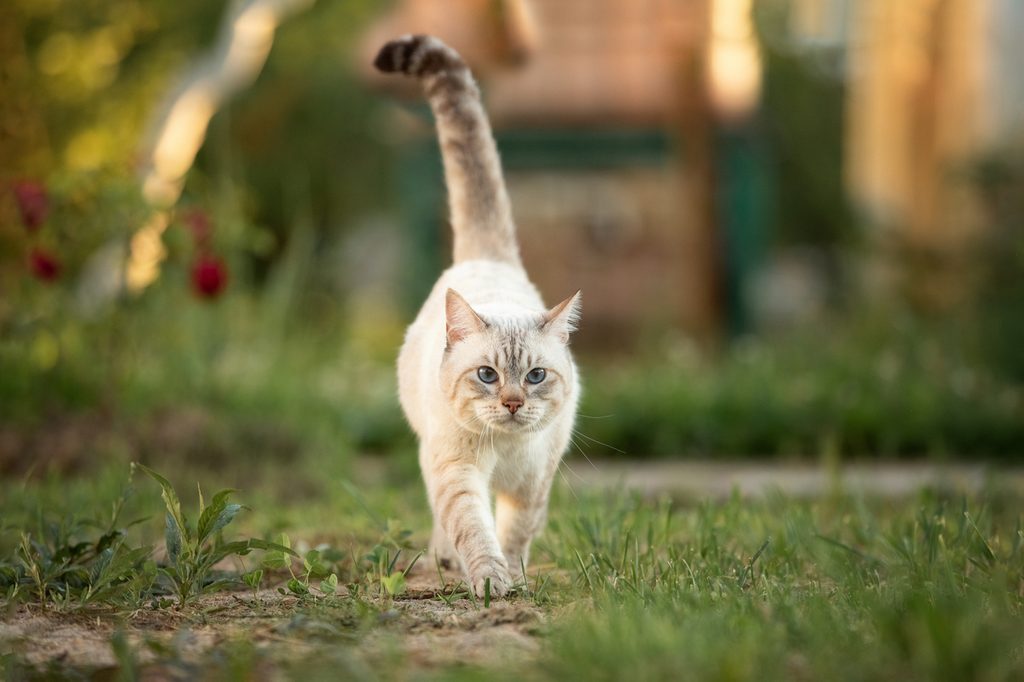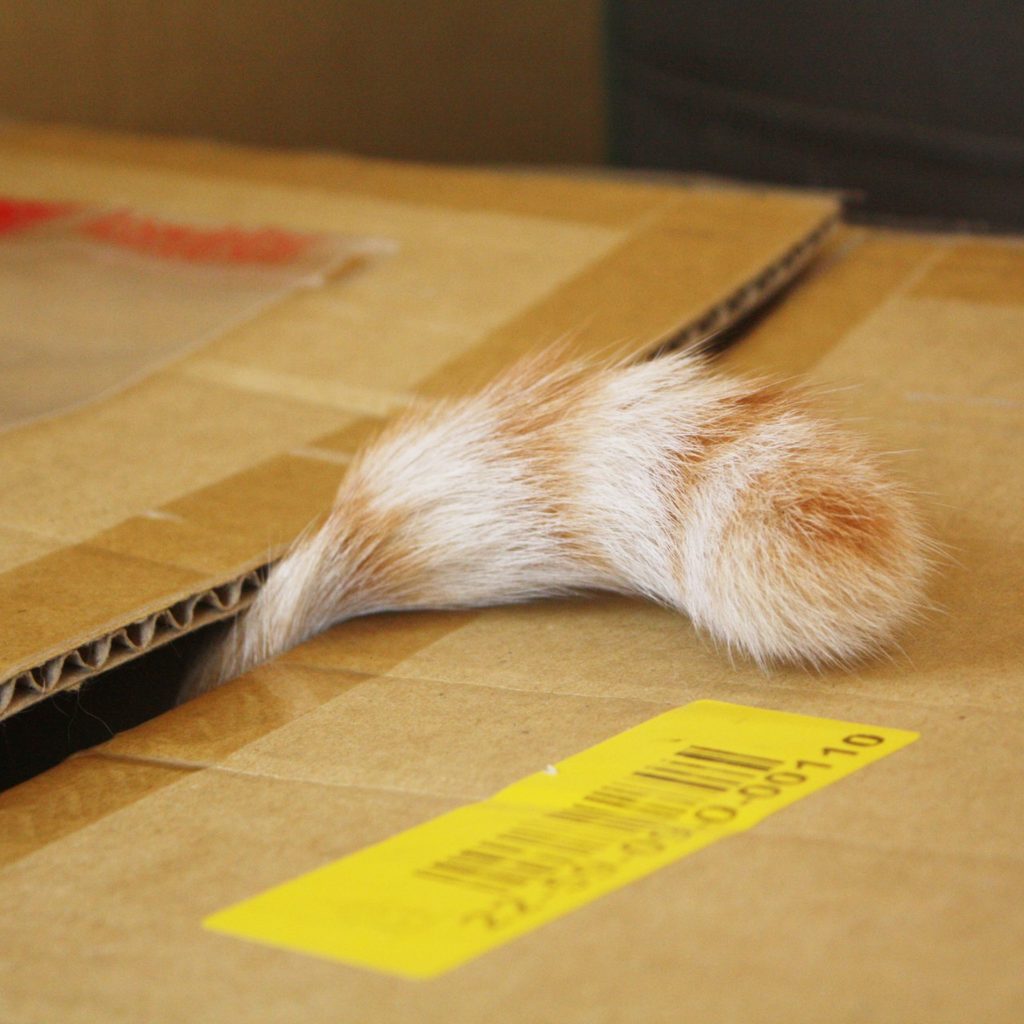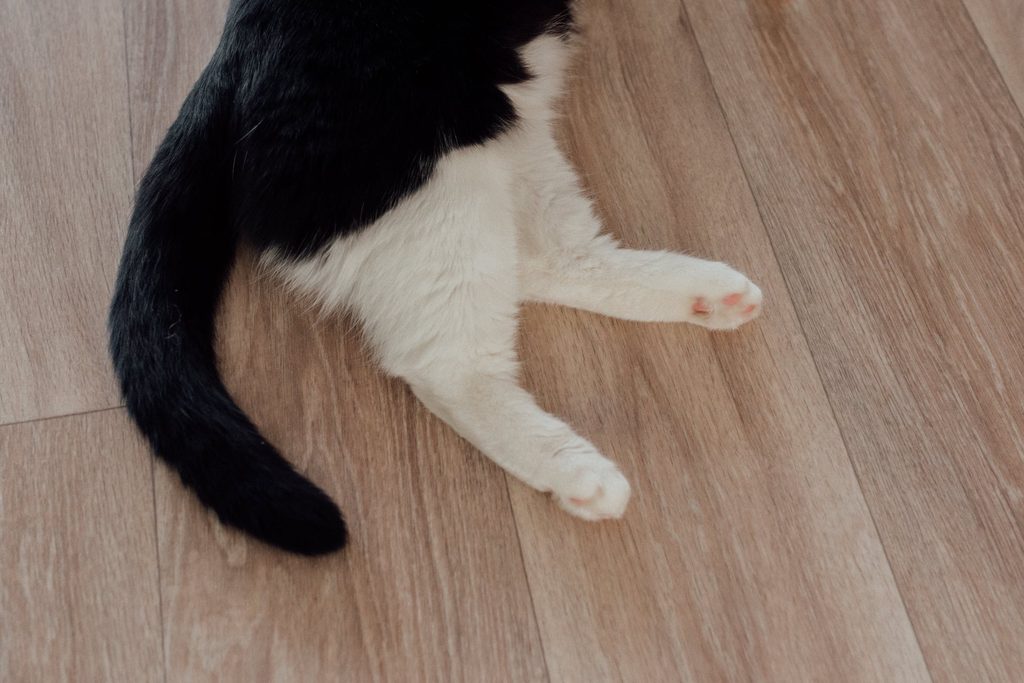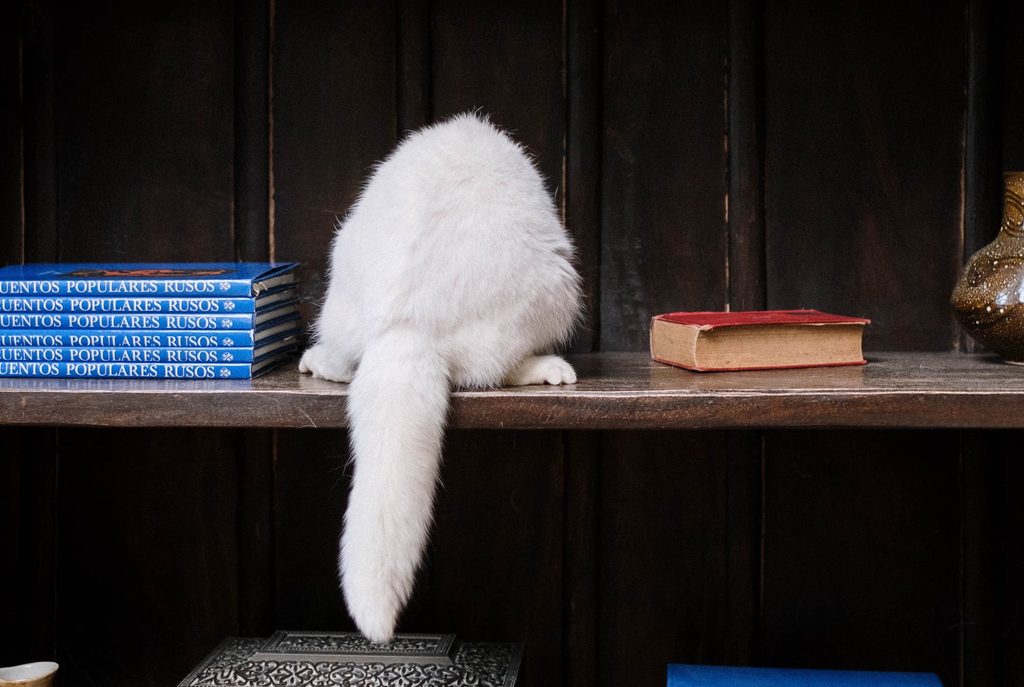
If you’ve ever wondered, “Why do cats have tails?” you’re certainly not alone. Tails are odd appendages for humans to comprehend, but they serve more than one purpose besides simply being cute to look at. Different breeds of cats have different kinds of tails, too, but they all help in the very same ways.
And what about cats that don’t have tails? Many felines are born with genetic variants that give them a short or “bobbed” tail, but this hardly affects them at all. The same can be said for cats that lose their tails later in life; it may be an adjustment period, but a tail is not essential to a happy, healthy life.
Here’s what else you’ll want to know about why cats have tails!

Tails help cats balance when moving and jumping
One of the primary functions of feline tails is to help them balance when climbing and jumping like cats do. In fact, this is one of the main reasons why cats always land on their feet. As they leap or walk on something narrow, they position their tails strategically, like a counterweight.
East Valley Animal Hospital compares the tail’s counterweight to the way people hold out their arms when trying to balance themselves. It’s not necessary for a cat to have a tail in order to keep their balance, but it sure is helpful.

Tails provide cats with sensory input
Did you know that a cat’s tail is actually an extension of their spine? The bones that make up the tail are vertebrae that extend from the spinal column, and although the spinal cord itself doesn’t extend into the tail, the nerves in the tail do. As you can imagine, these nerves are extremely sensitive, which is also why many cats don’t like having their tails touched.
Because these nerves are so sensitive, cats can gain lots of sensory input from their tails. They can often sense when something is behind them, and they can get a very good read on temperature from those nerve endings. If you see your kitty tucking their tail in on a chilly night, they might be colder than you think.

Cats, dogs, and other animals communicate with their tails
Felines aren’t the only animals that communicate with their tails. Dogs, deer, and many wild animal species communicate with one another using their tails, though your cat may use their tail to communicate with you, too!
Different tail postures mean different things, so it’s important to study feline body language if you want to know what your buddy is trying to say. For example, an upright, slightly wagging tail is a sign of a curious and happy cat, while a fluffed-up, fast-twitching tail can be a sign of aggravation.
Additionally, cats have scent glands at the base of their tails that are vital in chemical communication. This is how they mark their territory and how they can tell who else has been there before.
Cat tails serve many purposes, though they aren’t essential to happy felines. Balance and communication can be achieved through other methods, too, but there’s no doubt that there are many reasons to appreciate a cat’s expressive tail.




